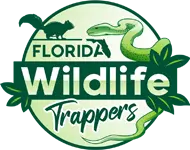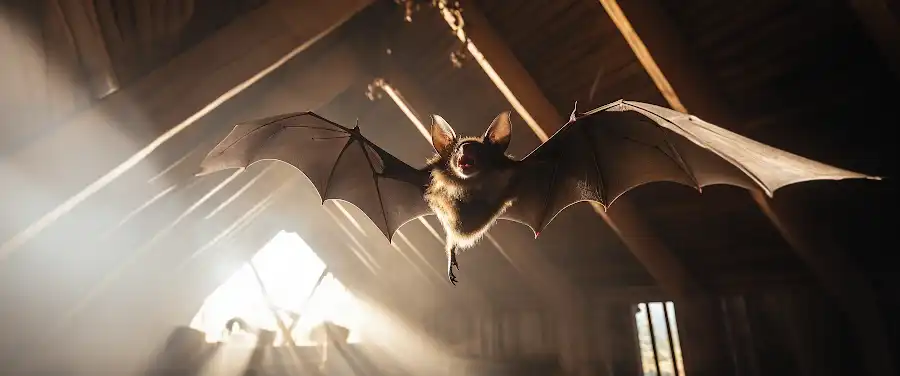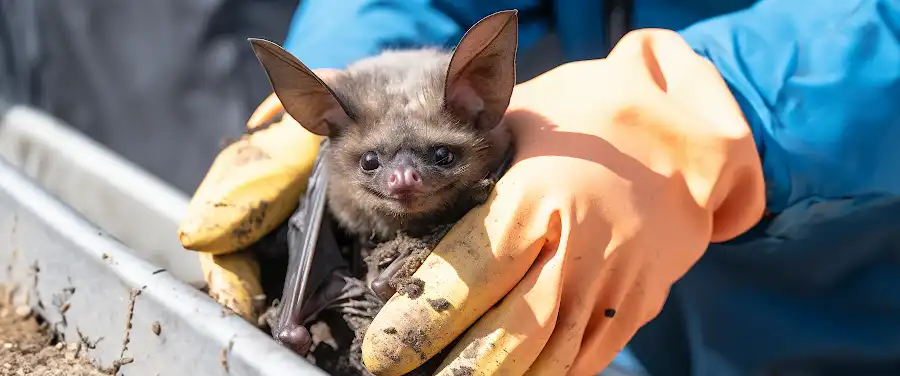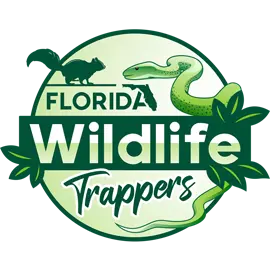
Hey there, do you know about the intriguing world of vultures and their knack for circling our neighborhoods here in Florida? Well, buckle up for a ride that’ll change the way you view these office-building-crusher-bird-of-prey. There’s more to them than meets the eye, and it just so happens we’re also going to throw light on something quite important – vulture nuisance laws and regulations in Florida.
You see, while these creatures can be a bit of a headache at times – think damaging properties and causing jeopardy – it’s not legally acceptable to just shoo them off. There are specific vulture regulations in Florida that have been enforced to protect these birds, yet balance the well-being of residents at the same time. So, understanding these laws isn’t just some random trivia to impress your friends with, it’s a necessary means to peaceful cohabitation.
Getting into the nitty-gritty of vulture laws doesn’t mean you’ll be fighting court cases or anything. What it does mean is that you’ll be armed with valuable information to protect your home, your community and, of course, the vultures. It also opens up the pathway to comprehending the multi-faceted role these birds play in our ecosystem – a topic that will be perfectly aired out in our next section. Stick around to catch that on the flip side!
What Constitifies a Vulture Nuisance in Florida?
In the sunny state of Florida, vultures have been a long-standing issue. The problem isn’t just their intimidating presence; it’s the damage they cause and the havoc they wreak that makes them a real problem.
Defining a vulture nuisance isn’t as simple as counting the birds overhead. Typically, a vulture becomes a problem when their presence results in property damage, health hazards, and interference with human activities. Does the sight of a loitering vulture that appears sinister and a tad off-putting ring a bell?
| Vulture Behavior | Resultant Problems |
|---|---|
| Sharp Beak Pecking | Property Damage |
| Droppings | Health Hazards, Unpleasant Odors |
| Feeding Habits | Interruption to other Wildlife |
| Aggressive Behavior | Threat to Pets and Livestock |
Vultures as a problem in Florida causes a downpour of difficulties, reflecting not just in the urban populace but also ruffling feathers in the biodiversity. These carrion-eaters, whose numbers seemingly increase without check, have been known to destroy roofs, encroach on residential areas, and most alarmingly, pose a threat to livestock and pets. More often than not, these situations escalate quickly, leading to urgent reactions from homeowners and wildlife management agencies alike.
According to the Florida Fish and Wildlife Conservation Commission (FlFWCC), over 10,000 nuisance calls are made annually regarding vultures, with the number of complaints increasing every year. The expansive growth of urban areas into the state’s wilder landscapes creates alluring habitats for vultures, bringing them more into conflict with humans.
Given these facts, it’s easy to see why it’s crucial to manage vulture populations strictly and humanely. However, this isn’t an easy task due to the complex web of Laws and Regulations in Vulture Removal. Such rules are woven into motion to protect the environment, ensure public health, and uphold animal welfare. And, it is necessary to steer well-informed about these rules to stay in the clear.
However, Florida isn’t abandoned ship; solutions are setting sail. Understanding when a vulture becomes a nuisance, the impact on our livelihoods and the environment, and the best practices to prevent and resolve such issues can make all the difference.
Now that we’ve highlighted what a vulture nuisance is, let’s delve into why it’s critically important to manage vulture populations – our next topic in this conversation.
Why is it Necessary to Manage Vulture Populations?
In the delicate realm of nature, vultures play a critical role in maintaining ecological balance. However, too much of a good thing can turn into a nuisance and this is indeed what happens when vultures overpopulate. The management of vulture populations, particularly in areas like Central Florida, is thus crucial for a number of reasons.
Vultures are carrion scavengers, meaning they feast on the remains of dead animals. They play the role of nature’s clean-up crew, quite literally preventing the spread of diseases by limiting carcass rot. However, when their numbers get out of control, they can cause a variety of problems for humans and wildlife.
A surge in the vulture population may lead to property damage as these birds are known to peck and claw at roof materials, outdoor furniture, and even vehicles, causing significant financial drain. Moreover, an overpopulation of vultures can also disrupt other wildlife in the ecosystem, triggering a ripple effect of imbalances. For example, when vultures overrun nesting areas of other birds, it can threaten those species’ survival.
It’s important to stress that vultures are protected species under both state and federal laws due to their ecological importance. Therefore, managing their population can’t simply involve wiping them out – instead, it must be carefully done in a manner that respects these laws and regulations in vulture removal. This is why the need for humane and legal ways of managing vulture populations can’t be overstated.
In 2019, the US Fish and Wildlife Service reported that a community in Florida had to deploy a pool cleanup service to manage a roost of more than a thousand vultures, highlighting just how crucial this issue is^[1^]. So, rather than viewing vultures as merely a nuisance requiring eradication, we need to think of them as an essential part of our environment that needs to be responsibly managed.
It’s clear from this that addressing the reasons for vulture management involves walking a fine line – maintaining the fine tune of nature, while also managing the disruption caused by overpopulation of vultures. That’s where the laws enter the scene to ensure the balance is kept. How do those laws work? Let’s find out next.
What Laws are in Place to Protect Vultures?
Vultures, often considered nuisance creatures, actually play an important role in our ecosystems. To preserve their numbers and keep a balanced environment, there are numerous federal and state laws in place designed to protect them.
Federal laws protecting vultures primarily fall under the Migratory Bird Treaty Act, while Florida’s vulture protection laws are administered by the Florida Fish and Wildlife Conservation Commission.
Are Vultures Protected Under the Migratory Bird Treaty Act?
Absolutely! The Migratory Bird Treaty Act, which was ratified in 1918, has been instrumental in safeguarding numerous species of birds, vultures included. This law makes it illegal to harm, capture, sell or otherwise interfere with migratory birds, their nests, eggs, or baby birds. This Act specifically applies to vultures, ensuring their protection against indiscriminate hunting and removal.
The impact of Migratory Bird Treaty Act on vulture protection is immense. In essence, this law not only secures the existence of these creatures but also ensures they continue playing their role in the ecosystem.
Now, let’s take a deep dive into how this works at the state level, specifically in the state of Florida.
What is the Role of the Florida Fish and Wildlife Conservation Commission?
The Florida Fish and Wildlife Conservation Commission (FWC) takes the lead in locally enforcing the federal regulations regarding vultures. The FWC sets the regulations on vulture removal within the geographic boundaries of Florida.
Here is a quick glance at the roles of FWC:
- Implement Federal Laws at a State Level
- Protect Vulture Populations
- Regulate Vulture Removal
- Enforce Penalties for Illegal Vulture Removal
And now, to get a clearer picture, let’s dive into a table that presents the role of FWC in protecting vulture populations in Florida.
| Role of FWC | Description |
|---|---|
| Implement Federal Laws | The FWC ensures all federal laws, including the Migratory Bird Treaty Act, are observed |
| Protect Vulture Populations | Through various conservation efforts, the FWC works to protect these essential scavengers |
| Regulate Vulture Removal | FWC provides specific guidelines and issues permits for legal vulture removal |
| Enforce Penalties | Any violation of vulture protection laws are responded with strict penalties from FWC |
There’s more to know about removing vultures legally, and for that, one needs to understand what legal methods of vulture removal exist. And to delve deeper into this issue, join us as we transition to the topic of ” What Are the Legal Methods for Vulture Removal?”
Conclusion
Vulture removal, an important environmental concern in Central Florida, is tied to a set of definitive laws and regulations. Compliance with these legal rules is integral to maintaining the balance in our ecosystem and ensuring sustainability.
Florida is home to two species of vultures: the Black Vulture and the Turkey Vulture. Both species of vultures play a crucial role in our environment by acting as nature’s cleanup crew, consuming carrion and thereby controlling the spread of disease. However, at times, vulture populations create a nuisance, leading to the need for their removal.
Before embarking on the task of vulture removal, it is crucial to understand that vultures are protected under the Federal Migratory Bird Treaty Act. This means that without a federal permit, it’s illegal to harm, harass, or kill a vulture. Bearing in mind the importance of adhering strictly to vulture removal laws, ignorance can inadvertently tip the ecosystems delicately balanced scale and result in hefty fines or imprisonment.
As for regulations, individuals or businesses wanting to remove vultures from their properties must obtain a depredation permit from the U.S. Fish and Wildlife Service (USFWS). Upon submission of a permit, the applicant must provide substantial evidence of property damage or a significant nuisance, thereby clarifying that the permit is not misused.
Moreover, Florida’s laws and regulations encourage non-lethal deterrence methods. Tactics such as the use of effigies, pyrotechnics, lasers, and other aversive conditioning techniques can keep vultures at bay without causing harm. Thus, professionals with a comprehensive understanding of these laws and regulations are often sought for vulture removal.
The table below summarizes the critical information you need to know about vulture removal laws in Florida:
| Regulation | Details |
|---|---|
| Protection Law | Federal Migratory Bird Treaty Act |
| Permit Required For Removal | Depredation permit from USFWS |
| Nature of Deterrence Method | Non-lethal methods preferred |
The review of vulture removal laws highlights the interconnectedness of man and nature. The role of laws and regulations does not translate to mere restrictions but reflects a commitment to cohabitation. We owe our vulture friends, and the ecosystem, responsible interaction.
So remember, understanding these laws and committing to them is not just about dodging legal repercussions. It’s about maintaining the delicate balance that allows all species, big and small, to thrive. Remember, we share this beautiful state and planet with an array of wildlife. Let’s act responsibly to ensure that every species, including those misunderstood vultures, continue to play their pivotal role in our ecosystem. Don’t be a part of the problem, contribute to the solution.
In engaging with professionals for vulture removal, make sure their processes align with these regulations. Moreover, be an informed advocate, spreading awareness about these mandates, encouraging responsible practices. Together, we can ensure harmony between human progress and our valuable environment!




